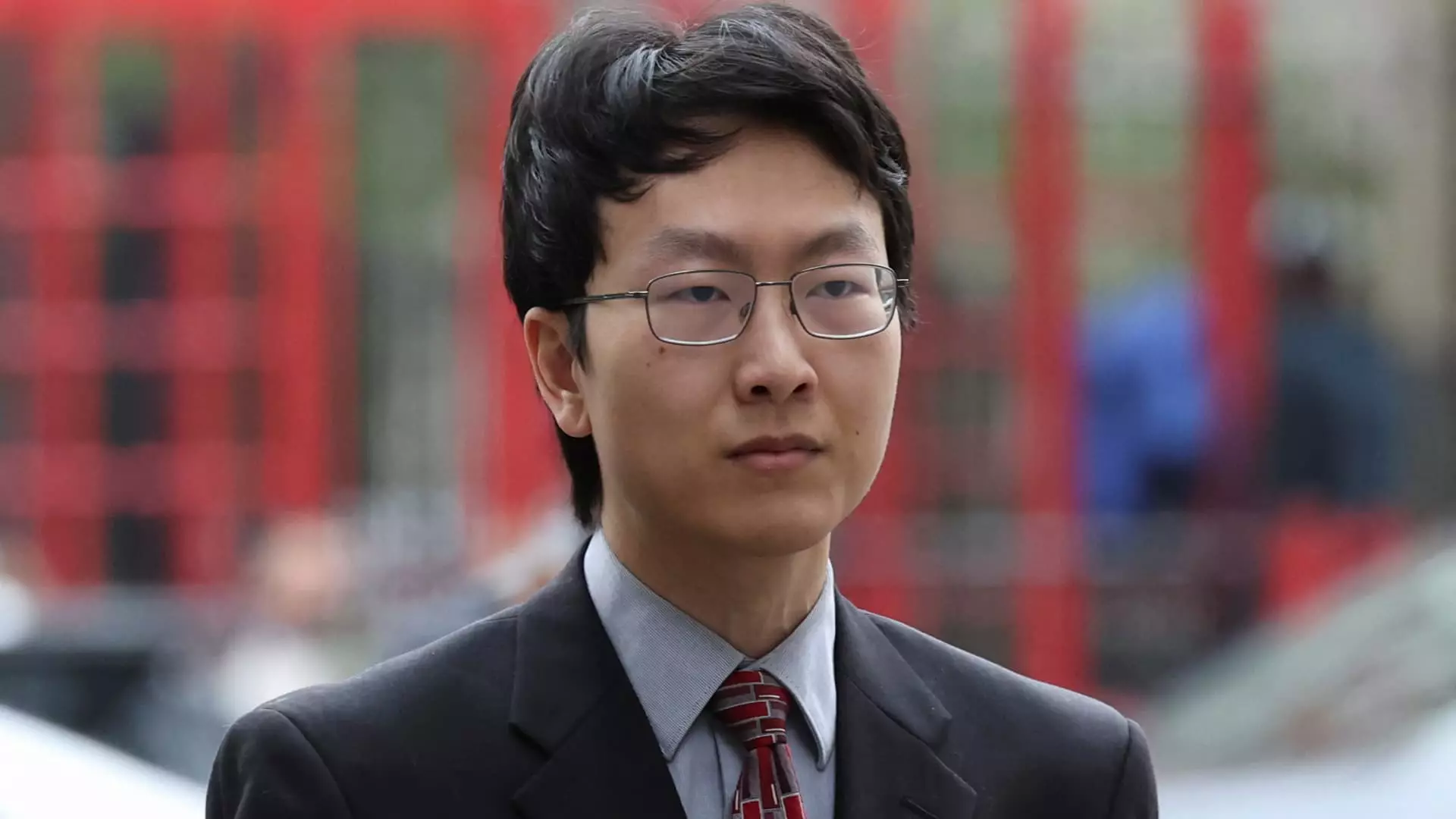The implosion of FTX, once a titan in the cryptocurrency exchange space, has sent shockwaves through the financial world. The co-founder and former technology chief, Gary Wang, recently garnered significant media attention after being sentenced for his involvement in the exchange’s fraudulent activities. Wang’s case exemplifies the complexities of accountability in a rapidly evolving financial sector, demonstrating the fine line between cooperation with authorities and a quest for personal redemption.
Gary Wang was charged with multiple counts of conspiracy to commit fraud, including wire and securities fraud. The gravity of these offenses carried a maximum imprisonment sentence of 50 years, raising the stakes not just for Wang but for the reputation of the cryptocurrency industry at large. As he pled guilty to four felonies, the weight of responsibility for the catastrophic failure of FTX began to coalesce around him. The loss of billions for customers and investors underscored the dire repercussions of his actions.
In a dramatic turn of events, Wang stood as a witness against his former boss, Sam Bankman-Fried, testifying about the alleged mismanagement and fraud within the organization. This move was both a tactical and moral one—suing for leniency by showcasing his cooperation with federal authorities, he attempted to position himself as a remorseful figure rather than a villain in this high-stakes drama.
During sentencing, Wang expressed his profound regret, stating, “I took the easy path, the cowardly path, instead of doing the right thing.” His emotional declaration, coupled with the support of his family, including a pregnant wife, painted a picture of a man grappling with his conscience. This plea for forgiveness is indicative of a growing sentiment among those ensnared in corporate malfeasance, where the human cost of financial crimes cannot be understated.
Wang’s apology, however, raises questions about awareness and culpability. His defense claimed that he lacked complete knowledge of the broader scheme at FTX and its sister company, Alameda Research. This gives rise to a broader dialogue on the nature of complicity and the barriers to transparency that often plague large organizations. The nuances of his involvement ignite discussions on where personal responsibility ends and corporate culture begins.
Wang’s sentencing outcome—three years of supervised release and the forfeiture of $11 billion—aligns him with other key figures in the scandal. Notably, Nishad Singh, another co-defendant who received a more favorable sentence, complicates the narrative around fairness and justice in these legal proceedings. Meanwhile, Bankman-Fried faced more punitive measures, reflecting the judge’s view on his leadership role in the agency’s catastrophic failure.
Judge Lewis Kaplan, tasked with overseeing the case, emphasized the unprecedented nature of the betrayals witnessed during these proceedings. His stern remarks point to a judicial resolve to hold powerful individuals accountable while also acknowledging the depth of Wang’s cooperation. The diversity of sentences among the FTX executives highlights inconsistencies in legal repercussions for corporate crime, creating a layered dialogue on ethics in the business realm.
Despite the legal fallout, Wang has sought to pivot his skills towards larger societal benefits. He has been utilizing his programming expertise to develop fraud detection tools for both cryptocurrency and stock markets, offering a redemptive arc for his former contributions to a deceptive organization. Prosecutors hailed him as a remarkable cooperating witness, underscoring his vital role in helping the government navigate the tangled web of FTX’s fraudulent activities.
As we move forward in a digital age fraught with new complexities, the FTX scandal serves as a somber lesson about corporate governance, ethical responsibility, and the need for transparency in financial institutions. The case of Gary Wang epitomizes the struggle many individuals face in a morally ambiguous corporate environment, forcing us to confront uncomfortable truths about accountability, redemption, and the structures that enable both tragic downfalls and potential recoveries.
The ramifications of Gary Wang’s case extend well beyond his sentencing. They shed light on the urgent need to better regulate the cryptocurrency space and incorporate ethical practices within technology-driven organizations. As Wang endeavors to rebuild his life and career, his journey illustrates a spark of hope that mistakes can lead to reform—not just for the individuals involved, but for the entire industry. The lessons learned from this saga may foster a more transparent, just, and responsible business environment for the future.

